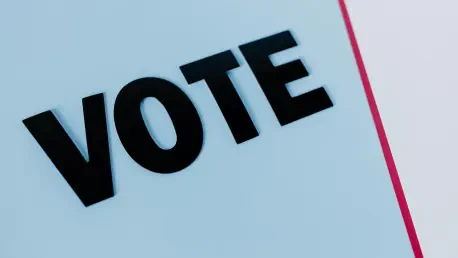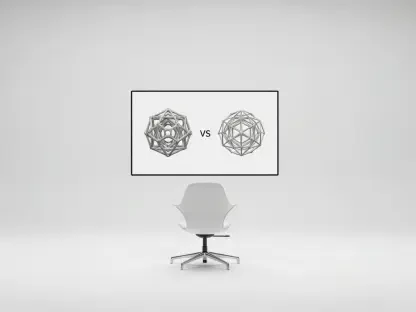In an era where the legal profession faces unprecedented shifts due to technological advancements and societal challenges, UC Law San Francisco (UC Law SF), formerly known as UC Hastings, has launched a groundbreaking initiative that could redefine the future of legal education. The “Into the Future” campaign, a historic $100 million fundraising effort, marks the first comprehensive campaign in the institution’s nearly 150-year history as the oldest law school west of the Rockies. With an ambitious target to be met by 2027 and an impressive $66.1 million already secured, this endeavor under the leadership of Chancellor & Dean David Faigman is not merely a financial milestone but a visionary response to the evolving demands of law. From navigating the ethical implications of artificial intelligence (AI) to addressing global inequities, UC Law SF aims to equip students and faculty with the tools to lead in a dynamic landscape. This campaign promises to strengthen the college’s legacy of academic excellence and justice advocacy, positioning it as a beacon for innovation in California’s legal community and beyond. As the legal field transforms, the significance of this initiative cannot be overstated, raising critical questions about how such a substantial investment will influence the next generation of lawyers and the broader justice system.
A Bold Vision for Transformation
The “Into the Future” campaign stands as a strategic blueprint crafted to address both immediate and long-term challenges in legal education. Anchored by three core pillars—student success, faculty excellence, and innovative initiatives—this effort reflects UC Law SF’s commitment to maintaining its status as a leader in the field. The campaign goes beyond fundraising, embodying a mission to prepare graduates for diverse roles in courtrooms, corporate environments, and public service. By aligning resources with the rapidly changing legal landscape, the institution seeks to tackle pressing issues such as financial access for students and the integration of technology in law. This holistic approach ensures that UC Law SF remains relevant amid globalization and disruption, fostering an environment where academic rigor meets practical impact. The early success of raising over half the target amount signals strong support from donors and alumni, highlighting a shared belief in the college’s potential to shape the profession’s future.
Furthermore, the campaign underscores a profound dedication to justice advocacy, a value deeply embedded in UC Law SF’s history. Positioned in the heart of California, the college has long played a pivotal role in the state’s legal framework, and this initiative amplifies that influence on a national scale. The focus on interconnected goals allows for a comprehensive response to the needs of students and faculty while anticipating emerging trends. Whether it’s preparing for the ethical dilemmas posed by new technologies or ensuring graduates are versatile leaders, the vision is clear: to sustain excellence while pushing boundaries. This forward-thinking mindset sets a precedent for other institutions, demonstrating how targeted investments can address systemic challenges and elevate the standards of legal training in an increasingly complex world.
Breaking Barriers for Student Success
One of the campaign’s most impactful priorities is fostering student success by removing financial obstacles and enhancing practical training. A significant portion of the $100 million target is dedicated to scholarships and grants, designed to attract top talent from diverse backgrounds, including first-generation and underrepresented students. The high cost of legal education often deters promising individuals, but UC Law SF is committed to changing that narrative. Stories like that of Marilyn Aguilar-Portillo, a first-generation student in the class of 2027, illustrate the transformative power of such support. Her scholarship not only alleviated financial stress but also affirmed her potential to excel in business law, opening doors to opportunities that might have otherwise remained out of reach. This emphasis on accessibility ensures that talent, not economic status, determines who can pursue a legal career.
In addition to financial aid, the campaign bolsters hands-on learning through programs like legal clinics, fellowships, and summer grants, equipping students with real-world experience. Take Isabella Freitas Hicks, also from the class of 2027, who leveraged a public-interest summer grant to work at the California Energy Commission. This experience aligned directly with her ambition to become a land use attorney focused on renewable energy, blending her academic pursuits with tangible impact. Such initiatives, including the 92 summer grants awarded at $5,000 each, enable students to explore meaningful internships in government and nonprofit sectors without financial strain. By prioritizing both economic support and experiential learning, UC Law SF is cultivating a generation of lawyers who are not only skilled but also deeply committed to public service and societal good.
Championing Faculty Excellence
Another critical focus of the “Into the Future” campaign is the elevation of faculty excellence through endowed chairs and professorships, ensuring UC Law SF continues to attract and retain leading legal scholars. Faculty members are the backbone of the institution’s reputation for cutting-edge research and mentorship, and sustained funding through endowments secures their ability to influence both students and policy. Provost & Academic Dean Morris Ratner has highlighted the lasting impact of these positions, noting how they enable professors to shape future legal professionals through dedicated teaching and innovative scholarship. This investment is vital for maintaining the college’s prestige in a competitive academic landscape, reinforcing its role as a hub of intellectual advancement.
The breadth of faculty contributions at UC Law SF further underscores the importance of this pillar. Professor Manoj Viswanathan, co-director of the Center on Tax Law, has conducted significant research on making Social Security funding more equitable, addressing systemic financial disparities. Meanwhile, Professor Dorit Reiss has emerged as a key voice in vaccine law, tackling complex issues of regulation and liability that resonate in public health debates. These examples demonstrate how faculty work extends beyond the classroom, influencing real-world outcomes and policy discussions. By securing resources for such thought leadership, the campaign ensures that UC Law SF remains a driving force in addressing society’s most urgent legal challenges, from economic justice to health regulations, while preparing students to navigate these issues with insight and expertise.
Driving Innovation in Legal Practice
Innovation forms the third pillar of the campaign, with substantial investments in research centers and experiential programs that bridge the gap between theory and practice. UC Law SF hosts 17 programmatic centers, with the Center for Innovation (C4i) leading efforts to address contemporary challenges under Professor Robin Feldman’s guidance. C4i initiatives, such as the AI Law & Innovation Institute, explore critical topics like AI’s influence on democracy and liability for autonomous systems, while also exposing regulatory gaps in pharmaceutical pricing that drive up drug costs. These efforts highlight the college’s commitment to tackling the intersection of law and technology, ensuring that graduates are prepared for the ethical and regulatory complexities of modern practice. This focus on forward-thinking solutions positions UC Law SF as a pioneer in legal education.
Complementing these research efforts are practical programs like LexLab, the Startup Legal Garage, and the Corporate Counsel Externship Program, which connect students with real-world clients ranging from Silicon Valley startups to Fortune 500 companies. Campaign Co-Chair Kristin Sverchek, a 2007 alum and former president of Lyft, has emphasized the unique advantage of UC Law SF’s location in a global tech hub, which amplifies its ability to train students for emerging fields. By fostering direct engagement with industry, the campaign ensures that legal education evolves alongside technological advancements, producing adaptable professionals. This strategic alignment with innovation not only enhances student readiness but also solidifies the institution’s influence on how law intersects with rapidly changing societal and economic trends.
Reflecting on a Legacy of Impact
Looking back, the “Into the Future” campaign emerged as a defining moment for UC Law SF, encapsulating its dedication to excellence and justice through a historic $100 million fundraising effort. The substantial progress made with $66.1 million raised reflects a collective trust in the institution’s mission to adapt legal education to a shifting world. By prioritizing student access, faculty scholarship, and pioneering programs, the initiative addresses immediate barriers while laying groundwork for long-term influence. Moving forward, the focus should shift to sustaining this momentum through continued donor engagement and expanding partnerships with industry leaders to further integrate real-world challenges into the curriculum. Additionally, measuring the tangible outcomes of scholarships and innovation programs will be crucial to demonstrate impact and inspire similar efforts across other institutions. This campaign’s legacy offers a model for how legal education can proactively evolve, ensuring that future generations of lawyers are equipped to uphold justice and innovation in an ever-changing global landscape.









